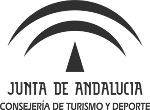Scientific evidence on the efficacy and safety of dietary protein
Protein diet and exercise
Abstract
Obesity has become a global pandemic, 2.8 million people die each year as a result of being overweight or obese, as declared by the World Health Organization (WHO). There are different approaches in the field of nutrition and physical activity to combat obesity. In the context of very low calorie diets (VLCD), we found the protein diet, a variety of ketogenic diet (KD) with a low fat content, according to the guidelines made by the commission and co-operation by the member states in the scientific examination of questions related to food (SCOOP) for the application of a very low calorie diet. The aim of this review is to provide scientific evidence to assess the effectiveness, safety and long-term maintenance of the effects of VLCD, and specifically protein diet, applied in the context of a multidisciplinary approach as the method Pronokal®, on overweight and obesity and its relationship with exercise.


